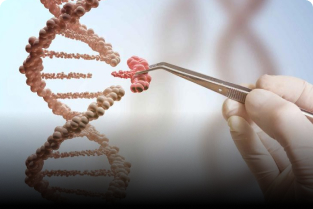In recent decades, science and technology have accelerated at an unprecedented pace, opening doors to revolutionary fields like nanotechnology and genetic engineering. Both are already transforming medicine, agriculture, and materials science — but as we look toward the future, an important question arises: Will nanotechnology be as important as genetic engineering in the years to come?
Let’s explore the potential of both these fields and how they may shape our future.
What Is Nanotechnology?
Nanotechnology involves manipulating matter at the scale of atoms and molecules — typically under 100 nanometers in size. This technology allows scientists to engineer new materials and devices with incredible precision, offering breakthroughs in areas like:
-
Medicine (targeted drug delivery, diagnostic tools)
-
Electronics (smaller, faster chips)
-
Energy (high-efficiency solar cells)
-
Environment (pollution control, water purification)
What Is Genetic Engineering?
Genetic engineering is the direct manipulation of an organism’s DNA to alter its characteristics. It has already revolutionized sectors like:
-
Healthcare (gene therapy, vaccine development)
-
Agriculture (GMO crops, disease resistance)
-
Biotechnology (synthetic biology, designer organisms)
Comparing Their Importance in the Future
1. Healthcare Revolution
-
Genetic Engineering: Personalized medicine is becoming a reality thanks to gene-editing tools like CRISPR, which allow for treatment of inherited diseases at the source.
-
Nanotechnology: Nano-robots could one day perform microsurgery or deliver drugs directly to cancer cells, reducing side effects and improving treatment outcomes.
Verdict: Both are poised to be equally revolutionary in medicine — often in complementary ways.
2. Agriculture and Food Security
-
Genetic Engineering: Can produce climate-resilient, pest-resistant crops, helping feed a growing global population.
-
Nanotechnology: Offers smart delivery systems for fertilizers and pesticides, as well as nano-sensors for monitoring crop health.
Verdict: Genetic engineering might take the lead in altering crop genetics, but nanotech will play a crucial supportive role.
3. Environmental Applications
-
Nanotechnology: Offers innovative solutions like nanomaterials for water filtration, air purification, and energy-efficient materials.
-
Genetic Engineering: Can help develop organisms that clean up oil spills or break down pollutants.
Verdict: Nanotechnology may have broader environmental applications due to its material science potential.
4. Ethical and Social Acceptance
-
Genetic Engineering: Faces significant ethical concerns, particularly when it comes to human gene editing.
-
Nanotechnology: Though not without its challenges, generally faces less public resistance.
Verdict: Nanotechnology may see faster adoption due to fewer ethical debates.
Are They Mutually Exclusive?
Not at all. In fact, the future may depend on the synergy between nanotechnology and genetic engineering. For example, nanoscale tools can be used to deliver genetic material precisely into cells, enhancing the effectiveness of gene therapy. Similarly, genetically engineered organisms could be designed to manufacture nanomaterials.
Final Thoughts
So, will nanotechnology be as important as genetic engineering in the future?
Absolutely. While genetic engineering changes life at the molecular level, nanotechnology gives us the tools to interact with matter at the smallest scales. Both are critical, and their combined power could redefine human health, sustainability, and innovation. Rather than competing, they will likely evolve side by side — shaping a future where science fiction becomes science fact.

